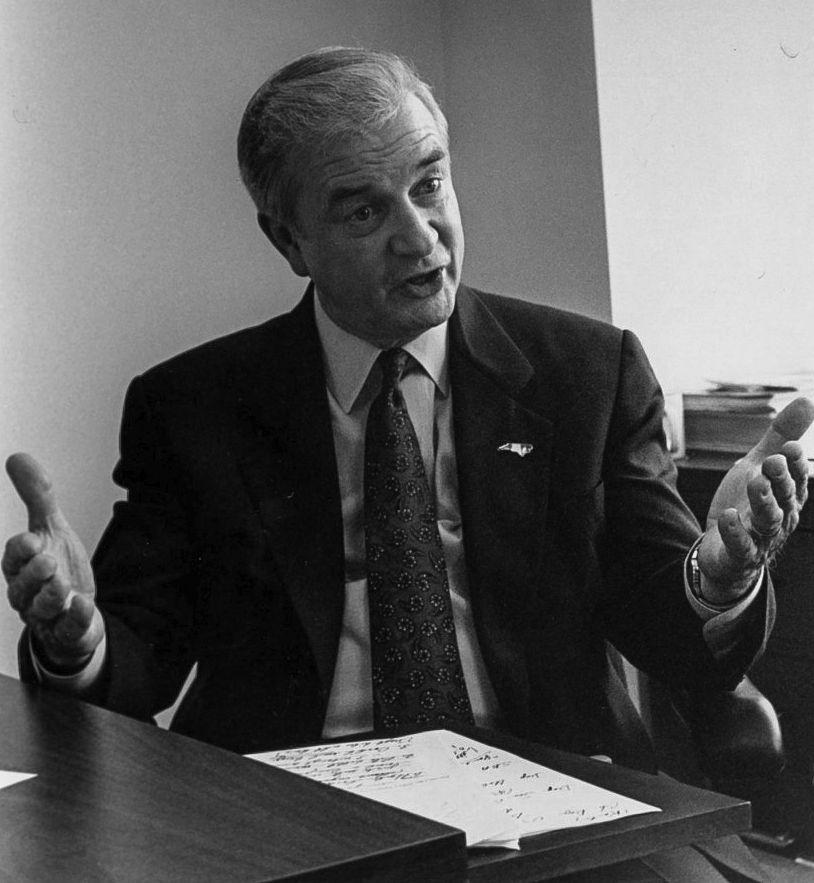On Tuesday, Dec. 3, former North Carolina Gov. James B. Hunt Jr. visited Burns Auditorium to speak on his tenure as governor. During his address, Hunt focused on North Carolina’s response to Hurricane Floyd and Fran during his term.
Hunt graduated from NC State in 1959 and was student body president for two consecutive years. He went on to become the longest-serving governor in the history of North Carolina.
During his address, Hunt discussed the damages North Carolina experienced as a result of Hurricane Fran and his response to the disaster. Citing a number of fallen trees, powerful winds and flooding, Hunt explained how he took to the skies to assess the storm damage via helicopter.
According to Hunt, once he was able to get a visual of the flooding and the infrastructure damages caused by the storm, he was able to effectively involve the National Guard in the western part of the state to assist with the relief efforts.
Hunt also discussed the preventative measures he and his colleagues made in preparation for Hurricane Floyd. According to Hunt, officials had been tracking Hurricane Floyd since its formation off the western coast of Africa. Hunt said of the two hurricanes, Floyd was far more damaging.
Hunt offered advice on how a governor should respond to a hurricane, suggesting that right after a hurricane hits a state, the governor should immediately survey the damages, determine the needs of those affected and begin providing relief.
Hunt emphasized the importance of listening to the victims of natural disasters to discern what the holes in the program are, which affects the governor’s response.
Hunt concluded the lecture by summing up some of the key lessons he learned through his tenure as governor.
“Learn about the local issues and needs, take an active role in recovery, understand the complex grant programs and see if they meet the needs of your state and local government, use political connections to your state’s advantages, and work closely with your state legislature including members of opposing parties,” Hunt said.
Hunt urged the audience to be active, to push for change and to do their share.
Individuals at the event had varying reasons for why they chose to attend the lecture.
Melissa Johnson, professor of communication, said she was interested in hearing Hunt’s analysis of crisis communication due to her background in communication.
“When we were starting our master’s program in communication, Hunt was very supportive of that,” Johnson said. “I want to honor him for that and to thank him for everything he has done for the university.”








